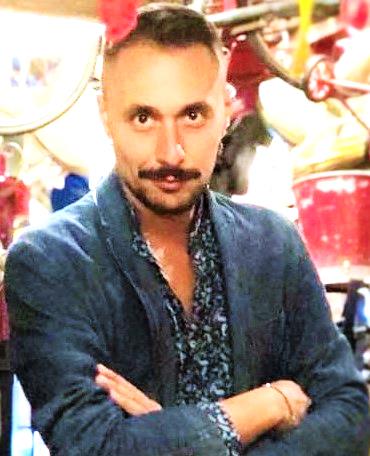Meet Ivano Sarno, Webmaster KCI

date: 23/10/2018
So, Ivano, tell us a few things about you, your background and previous experience.
I have a background in digital communication and recently obtained a postgraduate degree in International Affairs in order for my professional profile to be more adapted to the needs of the international communication practices. Over the years, I have been working in different professional environments - from journalism and television to international and public organisations, where I have been in charge of various social media management tasks, with a strong focus on editing, copywriting and project coordination. My 'journey' within the European Institutions started with a traineeship at the European Parliament in Luxembourg in 2017, followed by a consultancy position at the Publication Office, where I contributed to the launch of the revised EUR-Lex website.
What is your role in the framework of the Knowledge Centre on Interpretation (KCI)?
Since early September I am the webmaster of the KCI. In this role, I take care of the platform as a moderator and editor - we can say I am the interface for technical web-related matters between the web team and external users. In practice, this means that I create and maintain web pages in order to ensure wide usage, along with ensuring that the European Commission’s visual identity standards are respected. Now that the platform has become operational, I will also be in charge of monitoring the website traffic and responding to users' enquiries on technical issues and much more.
What are the current challenges?
As a brand new platform, we want to be able to make the KCI relevant for the interpreting community in its entirety so that the community feels the need to use it. This is the main reason why we are currently concentrating all our efforts in providing useful tools and making the external users’ access as easy and intuitive as possible, always trying to put the user-friendly aspect in the first place.
What are the next steps?
For the future, one of the key points will be the continuous updating of content and revising or removing older or inaccurate content. As you can imagine, the larger the community gets, the bigger the content to manage will become.
As already mentioned, our main objective is that the interpreting community gets massively involved. To that end, we are planning to implement new functionalities that will make the communication among users easier and more intuitive. A concrete example: the integration of a system of automatic translation, along with the creation of a multilingual version in all the 24 official languages of the EU in such a way as to foster the highest possible level of interaction within the interpreting community, with no linguistic barrier!
